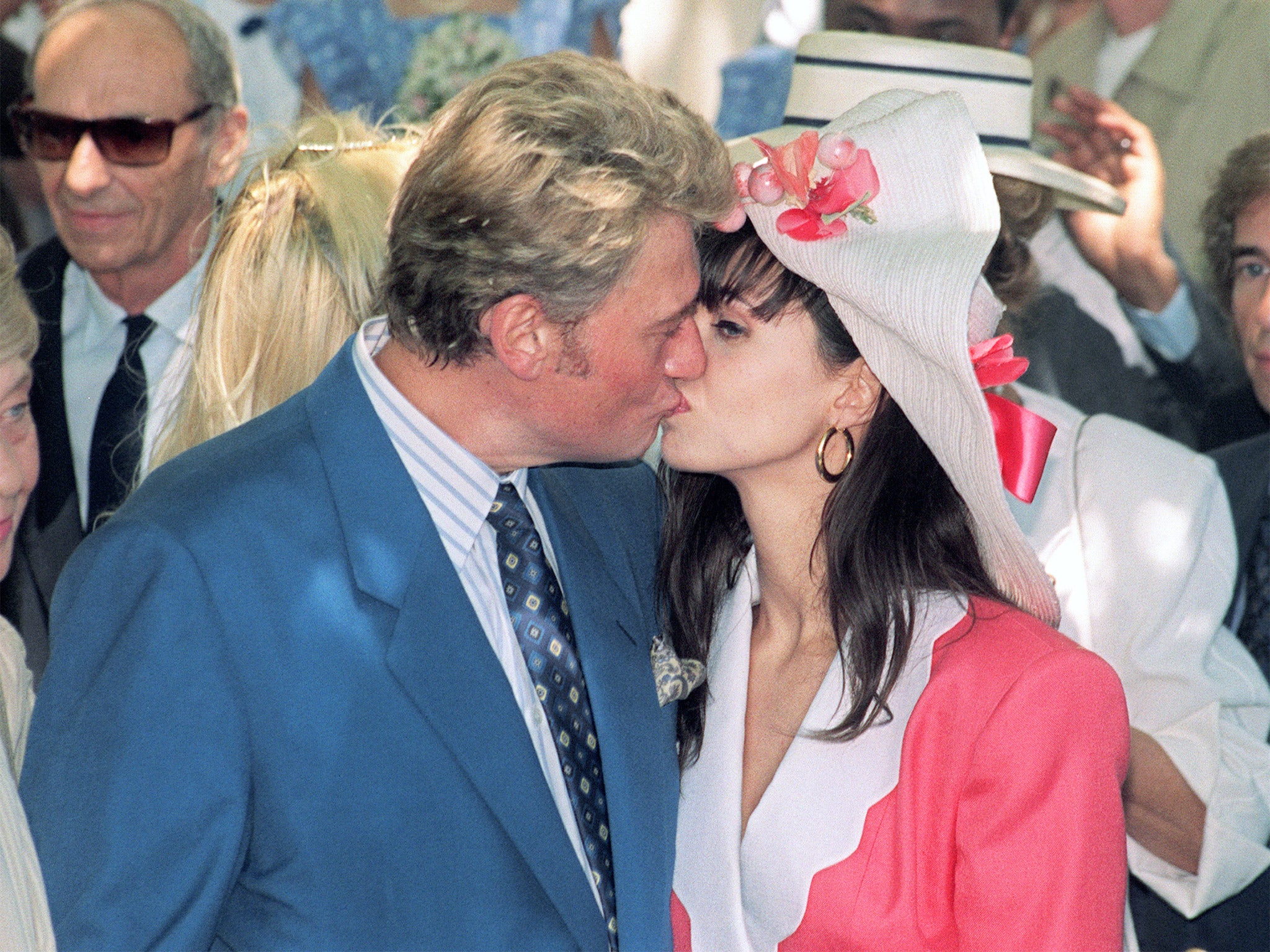Johnny Hallyday: Paris court clears singer of defaming his ex-wife in autobiography
Hallyday accused Adeline Blondieau of 'cheating on (him) with guys in St Tropez while acting like butter wouldn’t melt' – but this was not deemed to have dishonoured her

Your support helps us to tell the story
From reproductive rights to climate change to Big Tech, The Independent is on the ground when the story is developing. Whether it's investigating the financials of Elon Musk's pro-Trump PAC or producing our latest documentary, 'The A Word', which shines a light on the American women fighting for reproductive rights, we know how important it is to parse out the facts from the messaging.
At such a critical moment in US history, we need reporters on the ground. Your donation allows us to keep sending journalists to speak to both sides of the story.
The Independent is trusted by Americans across the entire political spectrum. And unlike many other quality news outlets, we choose not to lock Americans out of our reporting and analysis with paywalls. We believe quality journalism should be available to everyone, paid for by those who can afford it.
Your support makes all the difference.A Paris court has ruled that France’s best-loved singer, Johnny Hallyday, did not defame his ex-wife in his salacious autobiography published in 2013.
In Dans Mes Yeux (“In My Eyes”) Hallyday aired details of his relationship with Adeline Blondieau, a soap star and daughter of his best friend, before it ended in acrimonious divorce, triggering decades of mud-slinging.
Despite a Gallic distaste for tabloid headlines, the dispute has been of intense interest to the French public. Having made over 1,000 records and 24 platinum discs, Johnny Hallyday is France’s most successful musical export.
Ms Blondieau was 19 when they married for the first time in 1990, only to divorce two years later. They remarried in Las Vegas in 1994 but separated again after less than a year.
A month after the autobiography was first published she attempted to get three passages deleted, but was rebuffed when a court ordered the book’s publisher, Plon, to pay her a symbolic €1 in compensation for violation of her privacy, but did not order the book to be reprinted. In the new court action she took Halliday and his co-writer, Amanda Sthers, personally to task over the same three disputed passages. In one, Hallyday claimed she “would throw chairs out of the window after the smallest irritation”, describing her as “hysterical” and “impossible to live with” – traits the court ruled were neither proved nor disproved.
He also accused her of trying to blackmail him in the hope of taking over a flat they shared – which she denies.
But the court ruled that such accusations that surface during “contentious and highly publicised” divorce proceedings don’t damage reputations, since both parties “use the press to keep their reputation intact by having a dig at the other, without the public being able to know the true from the false”. Nor, it said, do accusations of adultery which she said were an “attack on her honour”.
Hallyday accused his ex-wife of “cheating on (him) with guys in St Tropez while acting like butter wouldn’t melt” – but this was not deemed to have dishonoured her because of “the evolution of morals over the past 10 years”. The pair crossed swords most viciously, however, over accounts of their relationship before they got married, after Hallyday wrote that Ms Blondieau – whose father, the singer Christian Blondieau, was his best friend – “ensnared him” into marriage. He alleged that, as a teenager she would make advances on him “to play with fire”, and asked him to marry her when she became 18. She disputed that account and by way of explanation offered what she called “a violent secret” that “linked us in a certain way”.
Ms Blondieau told the court on 23 September that Hallyday had sexually assaulted her at her parents house when she was 14 and 15 years old, saying the singer had come to her “every night when he was drunk”. Hallyday had moved into her father’s flat and it was during this period, Ms Blondieau claimed, that the abuse started. She described him as an “alcoholic and violent” man and said they had never before discussed the alleged assault.
Ms Blondieau cannot now bring a case against Hallyday for his alleged sexual assault as it was so long ago that the limitation period has passed.
Nor will Hallyday’s lawyers, who strongly deny all the claims, be able to bring a defamation case since the comments were made in court.
“We will never be able to know who’s telling the truth,” said lawyer Arnaud Albou.
Join our commenting forum
Join thought-provoking conversations, follow other Independent readers and see their replies
Comments